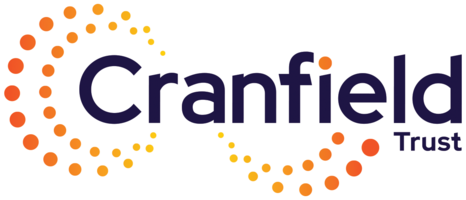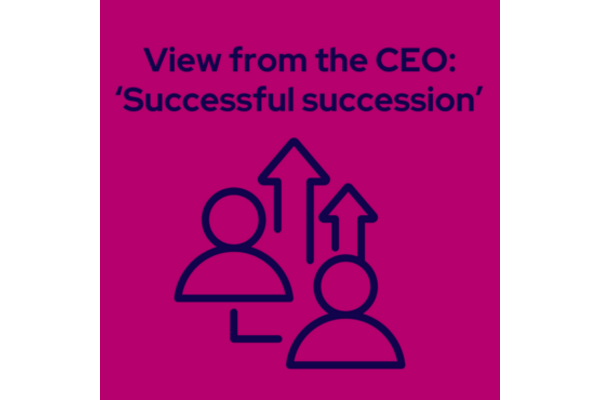Succession is very much on my mind at the moment, for various reasons, but mainly as I’m retiring from my role as Chief Executive of Cranfield Trust this autumn. Cranfield Trust is fortunate to have appointed Dan Francis to take on the role, and we’re looking forward to him joining the Trust at the end of September.
We recently published a report on five years of data from our impact framework, Journey to Excellence (J2E), and it’s thrown a spotlight on succession planning. Across all the charities, of all sizes, that we’ve worked with through the J2E process over five years, succession planning was the lowest scored area in terms of their capabilities, readiness and confidence.
For Chief Executives stepping down, it’s a challenge to sustain their organisations in the current climate, to ensure that they’re strong enough to withstand a leadership transition, and for senior leaders in all functions, ensuring that they prepare for a good handover is vital. For emerging leaders, whether heads of teams or projects, deputies or people preparing to take on their first Chief Executive role, we think it’s vital to be supporting the development of the management skills that will help them to be confident in leadership roles.
Leaders need a wide range of skills, both leadership and management capabilities. Cranfield Trust’s Charity Management Matters research in 2023 highlighted key skills that survey respondents wanted to develop in a 24-month timeframe: top areas were monitoring, evaluation and impact reporting, EDI, financial strategy, organisation strategy and financial management.
Cranfield Trust’s work often has an emphasis on planning and forecasting, over 50% of our consultancy projects focus on strategic and business planning. We are also very keen for organisations to have strong financial forecasts – especially cashflows – to help them make decisions in good time. These forward-looking skills and activities couldn’t be more important in the current climate, and the process of planning is as important as the plans themselves.
We know that most small charities don’t have budgets for training to support emerging leaders, our research showed that for 93% of respondents cost was a barrier to investing in training. However, there are many free and very low cost training opportunities available. Our research also included a training market map, and although this was collated in 2023, many of the providers are still active and relevant now.
We’ve also developed some Blueprints for skills needed by leadership roles in four key areas: leadership and strategic direction, people management, financial management and sustainability, and performance and impact. These are geared to helping people find free training offers relevant to their roles.
The process of succession is demanding for both parties – those moving on, and those taking over. Both need to be as well prepared as possible. Small charities may not have the opportunity to find new leaders from their own teams, depending on the size, skills and focus of the organisation – but developing skills across the team – even if not for succession purposes - pays dividends in organisation effectiveness.
Though we know that organisations have little resource to invest, we urge Leaders and Boards to support the investment of time in skills development across organisations. Without supporting the next generation of leaders to build the skills needed to manage in a chaotic and challenging climate, we’re not only making things more difficult for those following us, but for ourselves.




